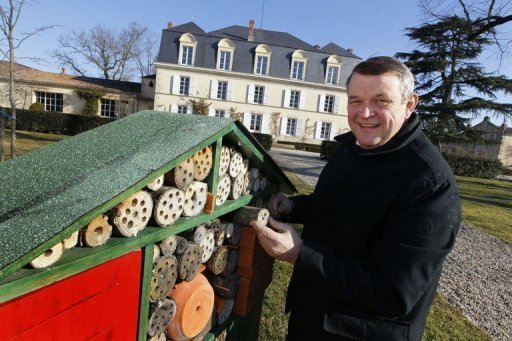Chateau Guiraud 2011 awarded the official biological farming (AB) logo
French organic vineyards doubled between 2007 and 2010 and then increased again 28 percent between 2009 and 2010 to reach 50,268 hectares (124,214 acres). These vineyards were run by 3,945 producers, up by 30 percent between 2009 and 2010, who made some 322 million euros ($426 million) from their wine.
Organic wine growing is gaining ground in France where a Bordeaux Sauternes “grand cru”, the highest classification level, has just been awarded the official biological farming (AB) logo.
Chateau Guiraud 2011 will be the first of the region’s top Sauterne wines to carry the logo, some 15 years after one of its owners, Xavier Planty, first started to experiment with organic farming.
While Chateau Guiraud was the first organic Bordeaux “grand cru”, Chateau Fonroque, a Saint-Emilion “grand cru”, was first to win the organic label in 2006.
“Rather than feed the soil with fertiliser we feed it with bacteria, traditional underground fare. It’s easy to go bio,” said to AFP
Xavier Planty, head and-co-owner of Chateau Guiraud premier grand cru classe.
“Illnesses such as mildew (a mushroom which nearly wiped out French vineyards in the 19th century) are closely monitored, and with weather conditions known up to a week in advance treatment can be giving preventively,” he said.
The Aquitaine region, around the Garonne river, is today the France’s third largest region with organic vineyards, behind
Languedoc-Roussillon and Provences-Alpes-Cote-D’azur, respectively in southwest and southern France.
Aquitaine now has 300 organic-certified vineyards and 400 working their way to it, even though few of these include top wines.
“For us, it’s not marketing, it’s our philosophy. We want as many people as possible to follow suit,” said Caroline Blondeel, in
charge of customer relations at Chateau Fonroque.
Chateau Fonroque offers advice to all wine growers who want to try their hand at organic farming “not only to protect the environment, but to protect people who work in the vineyards”


